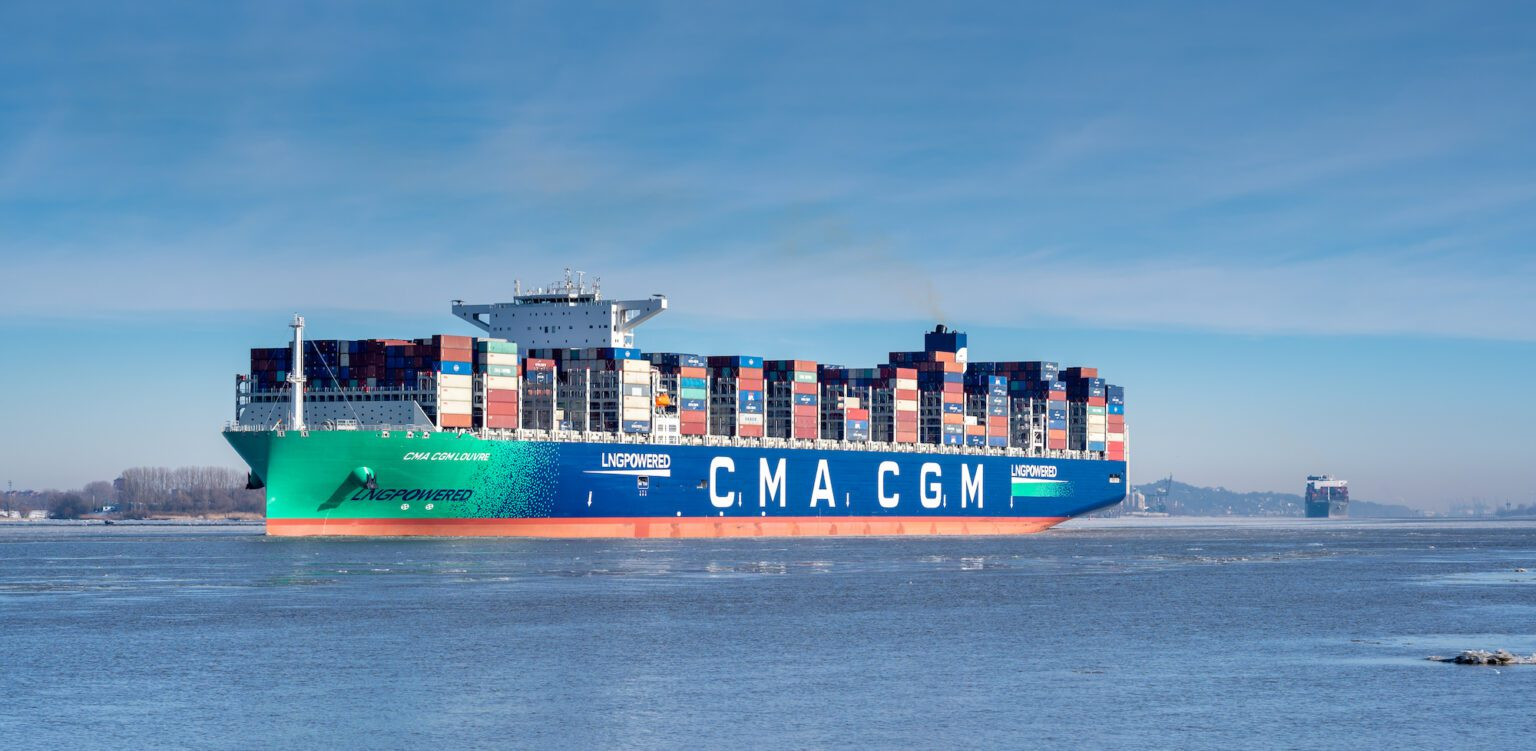Container shipping continues to lead other maritime sectors in the adoption of alternative fuels, according to new analysis from the Baltic and International Maritime Council (BIMCO).

Niels Rasmussen, BIMCO’s Chief Shipping Analyst, stated: “By August 2025, 534 container vessels under order globally will utilize alternative fuels upon delivery. This represents 53% of all container vessels currently under construction and 77% of total capacity (measured in TEUs).”
Analysis indicates that container ship orders also include 321 vessels that will use conventional heavy fuel oil, along with an additional 155 vessels designed to be retrofitted for alternative fuels in the future.
In the container shipping sector, alternative fuels are particularly favored for large vessels. For ships of 8,000 TEU and above, 81% of vessels under construction and 85% of the capacity under construction will utilize alternative fuels.
Container shipping thus stands in stark contrast to other shipping sectors, which have made slow progress in adopting clean fuel technologies. Rasmussen noted: “Despite an increase in orders for alternative-fuel vessels in recent years, the other three major shipping sectors still lag behind container shipping in this regard. In the bulk carrier, crude oil tanker, and product tanker segments, alternative-fuel vessels account for only 8%, 17%, and 9% of total new orders, respectively.”
Industry analysts believe this disparity may be linked to the structure of the market segments. “However, the prevalence of small and medium-sized vessel operators in these three major shipping sectors could negatively impact orders, whereas container shipping is dominated by a handful of large enterprises,” the BIMCO report explains.
Among alternative fuels, liquefied natural gas (LNG) continues to dominate, accounting for two-thirds of all alternative fuel vessel orders under construction, while methanol-fueled vessels represent 31% of the total. Although methanol briefly led in alternative fuel orders in 2023, LNG has since reclaimed its leading position.
This shift underscores the ongoing challenges in the shipping industry’s decarbonization process. The report states: “The renewed shift toward LNG highlights a key issue when ordering alternative-fuel ships: fuel availability. While the technology to build vessels with low-carbon operations is already available, the supply capacity for the required fuels appears to lag behind technological advancements.”
Looking ahead, BIMCO predicts significant growth in the alternative fuel container vessel fleet. Rasmussen noted: “Assuming none of the existing alternative fuel vessels are demolished, by 2030, after all ordered vessels have been delivered, the container fleet will consist of 837 alternative fuel vessels with a total capacity of 10.9 million TEU, equivalent to more than 25% of the total global container capacity at that time.”


